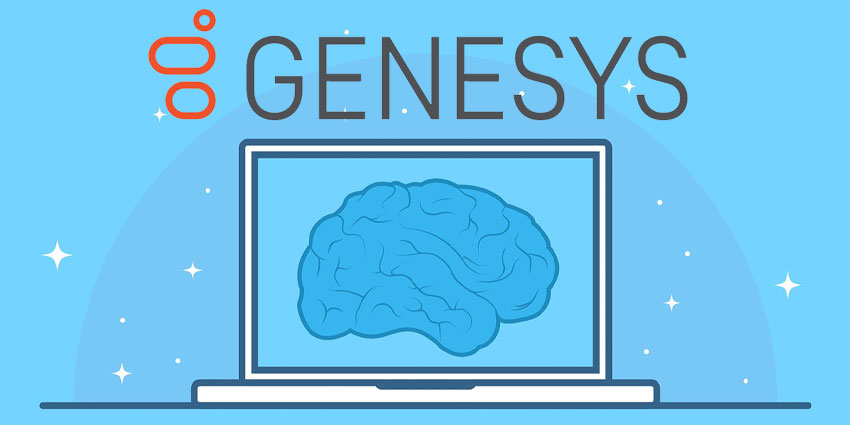Genesys, the global leader in omni-channel customer experience and contact centre solutions, recently revealed new research into the state of artificial intelligence (AI) in the UK workplace. According to the research, UK employees are optimistic about the impact that AI could have on their jobs. Around two thirds of the respondents said that they value new tools and technology to help them complete their tasks, and 64% claimed these tools make them more productive at work.
Although there are clear benefits in bringing AI into the workforce, there are also steps that companies need to take to drive adoption. Today’s team members feel that they need additional support and training to help them make the most of their AI environment.
Positive Feelings about the Rise of AI

In the past, the concept of AI entering the workforce was an idea met with scrutiny by many employees. Staff members were concerned that the rise of new technology would mean that they would no longer be needed in their roles. However, despite these concerns, over two-thirds of employees are no longer threatened by the idea of having intelligent tools at work and 59% of respondents said that they don’t believe AI will take over their jobs in the next ten years.
According to the study, employees see AI as a crucial component in their success, with more than a fifth saying that they believe bots or AI will be crucial to their company’s ability to remain competitive in the future. Said Steve Leeson, Vice President of UK and Ireland at Genesys:
“It’s encouraging that UK’s workers recognise the potential new technologies such as AI have to make their jobs more fulfilling and the value it can bring to businesses”
Although the study suggests that people feel more excited than nervous about the concept of AI in the workplace, respondents also know that they need help embracing these tools. According to the information revealed by Genesys, in the long-term employees want assurances from their employers in the form of ongoing training. 86% of people said that they want business leaders to provide them with training that will help them thrive in an AI-enabled workplace.
Providing the Right Support for the Age of AI
Employees have always valued the availability of training opportunities in the workplace, and now it seems as though they’re prioritising the chance to learn more than ever. It’s safe to assume that some of the roles in the modern workplace will evolve in a world where AI and human workers are operating together. It will be increasingly crucial going forward for companies to assess the need for ongoing training programs that will help their employees to further their skills.
According to Leeson, training opportunities needed in the workplace will be particularly important for furthering the skills that can’t be replaced by AI, such as empathy, leadership and creativity. Businesses should be adopting a blended approach which allows AI-technologies to work seamlessly alongside human employees, then it will be easier to get most of the investments made into this area.
The study from Genesys also found that around a fifth of employees are already working with AI, and only 16% of employees had any kind of negative experience when dealing with new technology in the workplace. Additionally, a significant 64% of staff members believe that there should be a requirement for companies to keep a minimum level of human employees in the workforce alongside machinery and robots. The research also offered an exciting insight into the potential of AI in the workplace at a time when 41% of millennials say that they spend at least half of their time interacting with computers, and machines based technologies instead of human beings.
The survey was conducted with a total of 801 adults in the UK, who answered a series of questions in April of this year. The respondents were divided into three separate age ranges, with 42% of the people identifying as men, and 58% identifying as women. Over 73% of the people surveyed had a full-time status as an employee, while the other 27% were working part-time.







